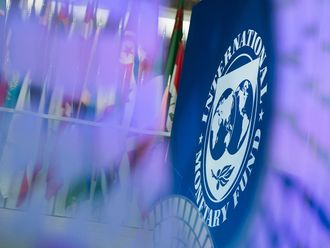Johannesburg, Nairobi: African policymakers worried that the US Federal Reserve’s liftoff will roil their markets even further, have room to breathe. For now.
Central banks across Africa have bucked a global trend by tightening monetary policy to ward off inflation threats as their currencies slumped against the dollar. For South Africa, Nigeria and Kenya — three of the four biggest economies in sub- Saharan Africa that decided on interest rates this week — the Fed’s decision to delay raising borrowing costs gives them a temporary reprieve.
“We should see less hawkish monetary policy committees, particularly in the countries where the currencies have come under pressure,” Yvonne Mhango, an economist at Renaissance Capital in Johannesburg, said.
From Ghana to Zambia, African currencies have been among the worst hit by a slide in investor sentiment toward emerging and frontier markets. The prospect of higher US interest rates is driving investors away from riskier assets at the same time as a slowdown in China fuels a slump in global commodity prices.
In South Africa, where the rand has weakened 14 per cent against the dollar this year, the central bank has raised the benchmark interest rate twice since July last year even as the economy risks falling into recession for the first time since 2009.
“Following the Fed’s decision to hold back, I think the most probable outcome for our MPC would also be unchanged interest rates,” Elize Kruger, an economist at KADD Capital in Johannesburg, said in an e-mailed note to clients. This is “predominantly due to the deteriorating local economic outlook and lower oil prices.”
Investors have pared back bets of higher borrowing costs in South Africa this year, with forward-rate agreements starting in three months, used to speculate on interest rates in the period, pricing in 20 basis points of increases, down from 45 basis points on August 24.
Yields on rand-denominated government bonds due December 2026 climbed nine basis points this year to 8.35 per cent on September 18. Yields on Kenya shilling bonds due October 2024 rose 80 basis points this year to 12.8 per cent on September 18, while in Nigeria, rates on naira debt maturing in March 2024 rose 48 basis points to 15.61 per cent. That compares with a drop of 19 basis points to 4.83 per cent in average yields on the Bloomberg Emerging Market Local Sovereign Index.
Nigeria and Kenya, which announced their rate decisions on Tuesday, are keeping their benchmark rates at 13 per cent and 11.5 per cent respectively, according to most of the economists surveyed by Bloomberg. The Kenyan shilling has slumped 14 per cent against the dollar this year, prompting the central bank to raise borrowing costs by 300 basis points since June.
The Fed’s decision provides the Central Bank of Kenya “an opportunity to freeze rates,” Robert Bunyi, managing director of investment company Mavuno Capital, said by phone from the capital, Nairobi. “If the Fed had raised rates, it would have put more pressure on the shilling as the dollar appreciates, and as money flows back to US Treasuries.”
In Nigeria, Governor Godwin Emefiele has kept the policy rate unchanged since raising it by 100 basis points in November. He has resisted pressure to devalue the naira following a slump in oil revenue, imposing foreign exchange restrictions instead to stabilise the currency.
Ghana’s central bank took pre-emptive action by raising the benchmark interest rate by 100 basis points to 25 per cent three days before the Fed’s announcement last week. Finance Minister Seth Terkper said in an interview on September 18 that the delay in monetary policy tightening in the US is good news and “with the worrying signals, particularly from China, the Fed decision gives relief to emerging markets”.
That reprieve may not last long, particularly for African countries running large fiscal and current-account deficits, according to Moody’s Investors Service. Nations such as Ghana, Uganda, Nigeria, Angola and Zambia are facing the prospect of possible outflows because of higher US interest rates, Rita Babihuga, an assistant vice-president at Moody’s, said in a report.
“Everybody will still be looking ahead as to when the potential US rate hike will come and the potential impact,” Ridle Markus, an analyst at Barclays Plc’s Africa unit, said from Johannesburg. “For now, they are relieved that it has not happened.”












